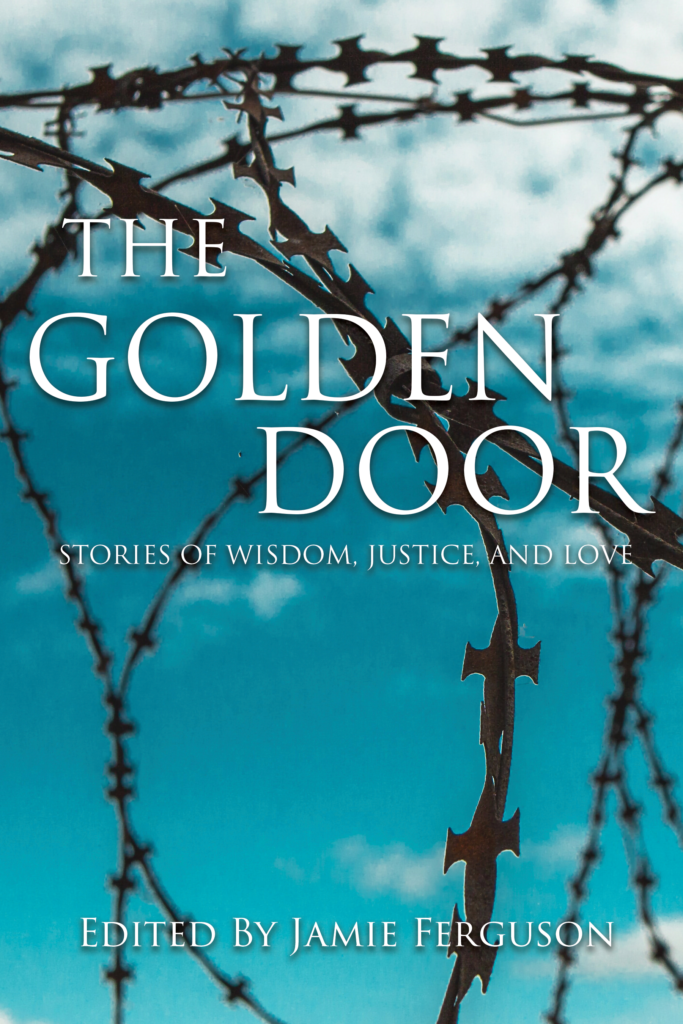
In Rob Vagle’s “Dispatch from the Other Side,” a young man who was separated from his family while trying to claim asylum in America follows the instructions on a postcard sent by his long-lost mother, and discovers things about his family he’d never expected to find.
“Dispatch from the Other Side” appears in The Golden Door, a collection of stories showing the impact on people when they’re treated as “the other,” whether they’re immigrants to a country, a group of targeted within their own country, or something else besides. The title refers to Emma Lazarus’s welcoming words inscribed on the plaque on Statue of Liberty, “I lift my lamp beside the golden door!”
Tales of mistreatment of “the other” abound in historical or religious writings from around the world and through all time. But there are also plenty of examples of people helping each other, caring for one another, learning about each other. Sometimes in big ways, sometimes in small—but they all add up.
All proceeds will be donated to Doctors Without Borders and the ACLU.
Find The Golden Door
Universal Book Link ~ Amazon ~ Apple Books ~ Barnes & Noble ~ Kobo ~ BookBub ~ Goodreads
Excerpt
“This was your mother’s last wish for you,” Aunt Maria said. “Do not disrespect that.” She pushed the postcard across the table, between her coffee cup and Antonio’s liquado in a glass tumbler.
“What that postcard talks about makes no sense, Aunt Maria,” he said. “We don’t know this postcard was sent by my mother. It’s a hoax.”
He stared at the postcard instead of picking it up. Hardly anybody used the U.S. mail anymore, and paper postcards were antiquated. The postcard had arrived sometime in 2019 when Antonio was a baby, still in a border detention center, unaware Aunt Maria was looking for him.
The postcard was plain and brown with typeface on one side, the other side blank. His aunt had pushed the card across the table typeface up where he could stare at the words: Message for Antonio Vega from Carmen Vega will be dispatched on July 22, 2036 between noon and four pm. No sooner, no later than that window of time.
—from “Dispatch from the Other Side” in The Golden Door by Rob Vagle
About Rob
A writer of the weird and fantastic, Rob’s stories have appeared in Realms Of Fantasy, Polyphony, Heliotrope, Strange New Worlds, Fiction River, and Pulphouse.
Find Rob
Find The Golden Door
Universal Book Link ~ Amazon ~ Apple Books ~ Barnes & Noble ~ Kobo ~ BookBub ~ Goodreads
